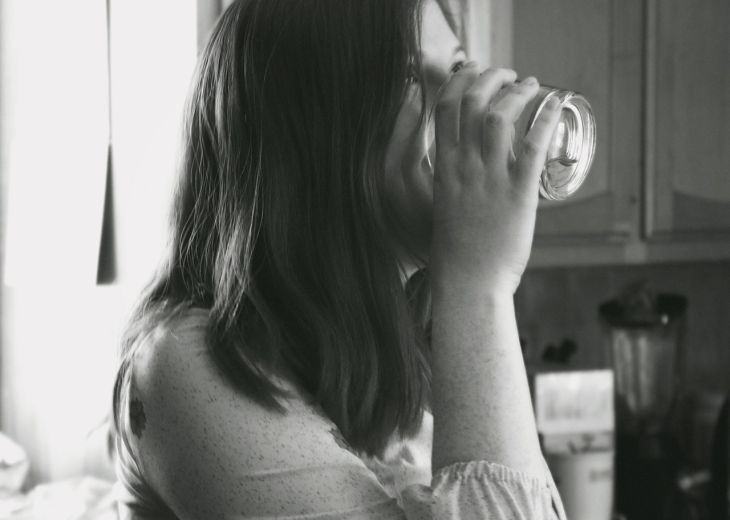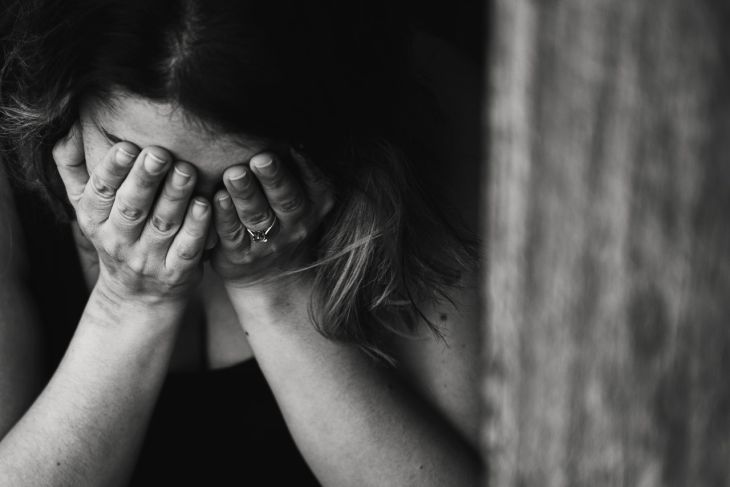Having a baby is one of the most beautiful things in the world, but it can often leave the new mother feeling horrible about herself. There’s how you look immediately after delivery, with messy or matted hair, sweaty skin, and fluids everywhere. After you’ve had a chance to clean up, you still have a larger tummy and more weight than you had pre-pregnancy.
It’s important to remember that you’re beautiful no matter what, but that doesn’t mean that you can’t decide you want to improve your appearance now that baby’s here. When you’re ready to start losing weight, it’s important to remember to do so safely. Let’s look at a few tips on just how you can do that.
1. Get Your Doctor’s Clearance
It’s tempting, once the baby has arrived, and you’re starting to feel better, to think you’re ready just to jump right in and start working out. Exercise is an important component to losing weight, but giving birth takes a tremendous toll on the body. You may have stitches, still be bleeding, or have other concerns that prevent or modify your ability to exercise.
Even if you may be physically all clear to start working out, you did just give birth. There’s a new normal in your home, whether this is your first child or your tenth. Take some time to find a new rhythm, get used to the demands of a new baby, and simply recover.
2. Breastfeeding Means More Calories, But Be Realistic
If you choose to breastfeed, it can help with weight loss, but only if you go about it the right way. Breastfeeding burns approximately 300-500 calories a day, and your body also needs more calories in order to create that breast milk.
Doctors usually recommend adding a few hundred extra calories to your diet. But it’s easy to overdo it. You need more calories to ensure that your body can cope with the demands of breastfeeding and that your baby gets a nutritious meal every time you feed them. But keep in mind that if you take in too many extra calories, your body will still end up storing those extra calories as fat.
If you’re not sure how many extra calories to eat, or how to get them into your diet in a nutritious way, consider scheduling a visit with your doctor or a nutritionist for some tips.
Make sure the calories you eat are healthy ones. It can be tempting, when you’re exhausted from night feedings and diaper changes, to give in to the comfort of chocolate, ice cream, or cookies, but while they may soothe you emotionally, they won’t do much for you otherwise.
As with anything, you can certainly enjoy those things in moderation, but you want to make sure the majority of your calories are coming from healthy fruits, vegetables, meats, and grains.
3. Drink Plenty of Water

Water has many benefits, from increasing energy to improving skin tone. But it can also play a great role in weight loss. It can increase the number of calories you burn, with no other changes to your diet or lifestyle. It can also help suppress your appetite. If you’re finding that you’re ravenous and taking in too many calories, drinking a glass of water before meals may help you eat less.
4. Have a Healthy Diet
Losing weight after having a baby isn’t really all that different from losing weight at any other time in your life. This means that, if you’ve lost weight before, you can do it now the same way you did before. Plans like Weight Watchers aren’t out of the question if that’s what you’ve used before and you need to lose a lot of weight.
It doesn’t have to be anything major, either. Simple changes like cutting out junk food, adding more fruits and vegetables, and reducing the number of calories you take in can be enough to make a difference.
5. Get Some Sleep
As a new mom, getting plenty of sleep or getting a good night’s sleep is a bit of advice that makes you want to roll your eyes. But it’s a sound piece of advice. Your body repairs itself during sleep. Too little sleep leaves you exhausted, emotionally unbalanced, and craving junk food. But if you get enough sleep, your hormones become more balanced – leptin levels increase, leaving you feeling fuller longer, and ghrelin, which induces appetite, goes down.
Sleep also makes it easier to make healthy choices when it comes to food, and if you’re well-rested, you’re also more likely to exercise. Not to mention, your body still burns calories while you’re sleeping (50-100 calories per hour, to be more precise).
6. Don’t Stress Over It

This might be just as important, if not more so, than any of the other tips. If you try too hard or start stressing too much over losing the weight, you’re going to put yourself in a self-defeating spiral. Relax! You can, and will, lose the weight. It just won’t happen overnight. It took nine months to gain the weight, so you have to allow at least a few more months to lose it.
Be kind to yourself. You’re dealing with a lot at this point, and while your health and losing the weight is important, so is your mental health. Don’t drive yourself crazy over it. Know that if you take small steps in the right direction, over time, they’ll add up to a bigger picture in which you’ve lost the weight and are feeling amazing.
Remember, too, that pregnancy is hard on the body. Even doing everything right, growing another human being is a lot of work. The body will need time to recover from that before it can even begin to work on improving. Take your time, be patient, and just keep the end goal in mind. You’ll get there eventually.
Final thoughts
Before focusing on how to lose the weight you gained in the last nine months, you should enjoy the moments with your kid. Sleep when they do, drink more water, and eat better for them and you. The pounds will be shed eventually. You don’t need to stress over it. It’s more important to pay attention to your overall health than looking as the media tells you should.

